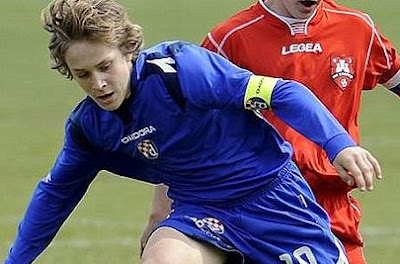Football Manager is not just about managing a team on matchdays; it's about building and developing a squad capable of achieving greatness. In this blog post, we will delve into the art of player development in Football Manager and explore the strategies and techniques that can help you transform a group of promising individuals into a world-class squad. Whether you're a seasoned manager or a rookie looking to make your mark, this guide will provide valuable insights to guide your player development journey.
1. Identifying Potential:
The first step in player development is identifying the right talent. Scouting plays a crucial role here, as it helps you uncover hidden gems and prospects with immense potential. Look beyond the surface attributes and delve into their attributes, personality, and potential growth. Consider factors like age, work rate, determination, and adaptability to assess their suitability for long-term development.
2. Tailoring Individual Training:
Once you've identified talented players, it's essential to tailor their training programs to maximize their potential. In Football Manager, you have control over individual training, allowing you to focus on specific areas that need improvement. Pay attention to their strengths and weaknesses, and create training regimes that enhance their skills, boost their attributes, and address any areas of concern.
3. Balancing Match Experience:
While training is crucial, match experience is equally important for player development. Strike a balance between giving young players enough game time to gain experience and ensuring they are not overwhelmed. Utilize reserve team matches, friendly games, and cup competitions to provide opportunities for your prospects to develop their skills in a competitive environment. Gradually increase their match involvement as they grow in confidence and ability.
4. Mentoring and Squad Dynamics:
Player development is not solely dependent on individual training; it's also influenced by the overall squad dynamics. Encourage a positive team environment by assigning experienced players as mentors to young talents. A mentor can have a significant impact on a player's development, instilling good habits, sharing wisdom, and aiding their progression. Pay attention to the personalities and dynamics within your squad to foster a cohesive and supportive atmosphere.
5. Player Traits and Role Suitability:
In Football Manager, each player has specific attributes and traits that make them suitable for certain roles and positions. Understanding these roles and matching them to a player's attributes is crucial for their development. Analyze each player's strengths and weaknesses to determine the roles that align with their skill set. Adapt your tactical approach and player instructions accordingly to allow them to thrive in their designated roles.
6. Individual Development Plans:
As a manager, you must create individual development plans for your players. These plans outline the specific areas you want them to improve upon and set targets for their growth. Monitor their progress regularly, provide feedback, and make necessary adjustments to their training routines. By setting clear goals and tracking their development, you can ensure that players are consistently progressing and evolving.
7. Loaning and First-Team Exposure:
Sometimes, players may require more game time than you can offer at your club. In such cases, loaning them to other clubs can be beneficial for their development. Choose loan destinations wisely, ensuring they will receive adequate playing time and be exposed to a suitable level of competition. Alternatively, gradually integrate young talents into your first team, offering substitute appearances or occasional starts to aid their development while maintaining a competitive squad.
8. Managing Expectations:
Player development is a long-term process, and it's essential to manage expectations along the way. Not every player will develop at the same rate or reach their full potential. Some may experience setbacks or periods of stagnation. It's crucial to remain patient and provide support to players who may be struggling. Monitor their progress, offer guidance, and consider adjusting their development plans if necessary
.
Building a world-class squad in Football Manager requires a multifaceted approach to player development. Identifying potential, tailoring training, balancing match experience, mentoring, and role suitability are all critical factors in nurturing talent and unlocking their full potential. By implementing these strategies and techniques, you can build a squad capable of achieving greatness and leave a lasting legacy as a successful manager. Remember, it's not just about winning matches; it's about developing players and shaping their footballing careers.

Comments
Post a Comment